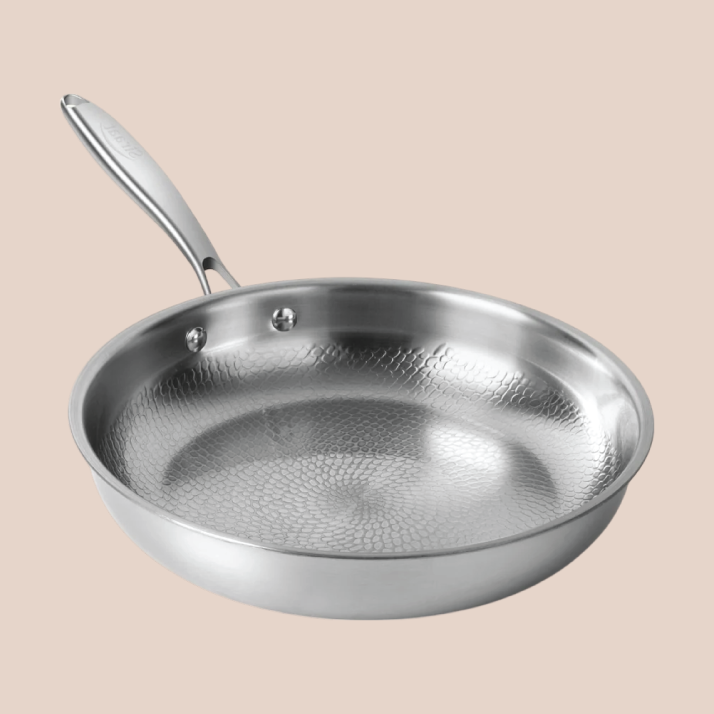
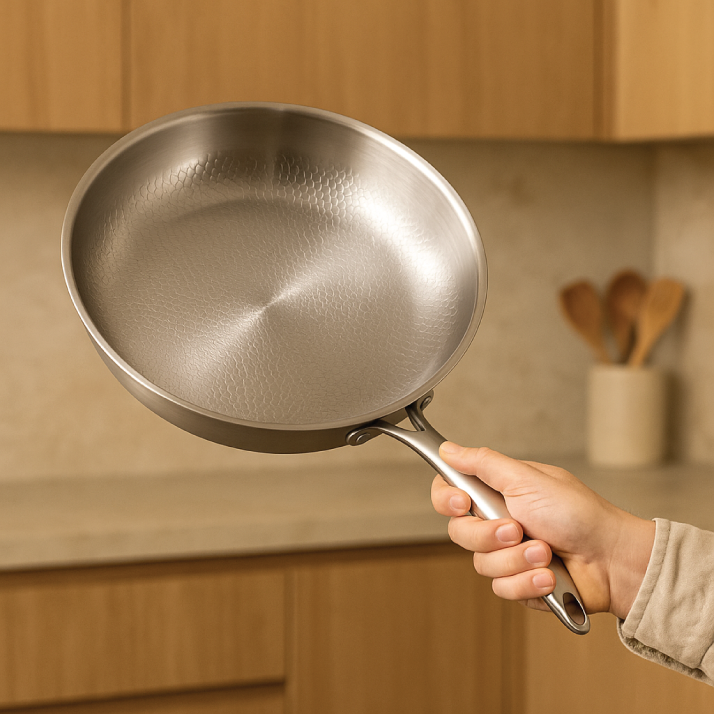
A Health Alert: The Hidden Dangers of Traditional Cookware
-
Toxic Non-Stick Coatings (PFAS, PFOA, & Teflon)
Most non-stick cookware is coated with chemicals like PTFE (Teflon), PFAS, and PFOA—substances known to break down at high temperatures. When heated, they can release toxic fumes that have been linked to hormonal imbalances, liver damage, and even cancer.
-
Bacteria & Coating Breakdown
With regular use, these coatings scratch and wear away, creating tiny crevices where bacteria and food residue collect. As the surface deteriorates, the underlying metal is exposed, increasing the risk of contamination.
-
Heavy Metal Leaching from Stainless Steel & Aluminum
Pans made from aluminum or lower-grade stainless steel can react with acidic foods like tomatoes or citrus. This interaction may cause harmful metals such as nickel, chromium, and aluminum to leach into your meals.
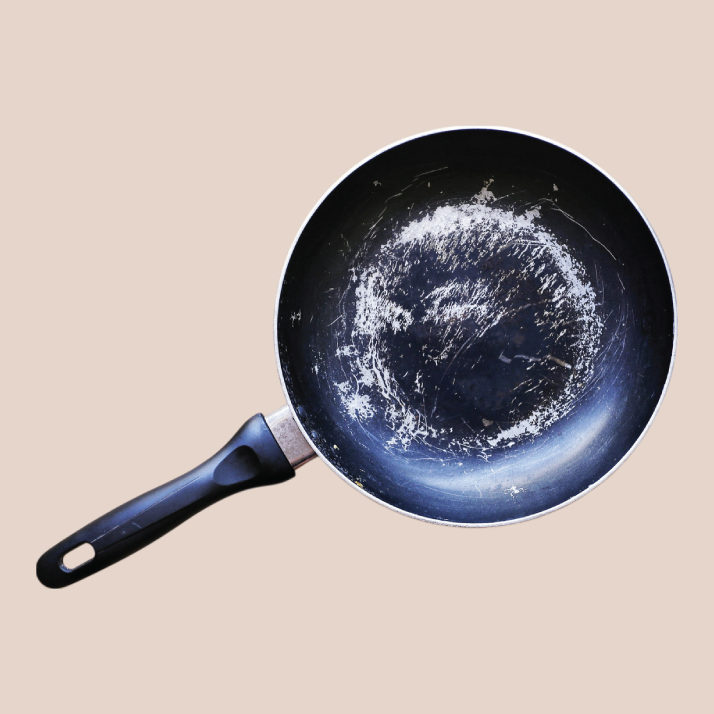
Teflon & Nonstick
Nonstick pans, particularly those coated with Teflon, may release toxic PFAS chemicals, often called "forever chemicals." These harmful substances are associated with cancer, liver damage, and other serious health risks. Over time, the coating can wear down or chip, allowing dangerous toxins to contaminate your food—especially when exposed to high heat. It’s time to choose a safer, healthier alternative!
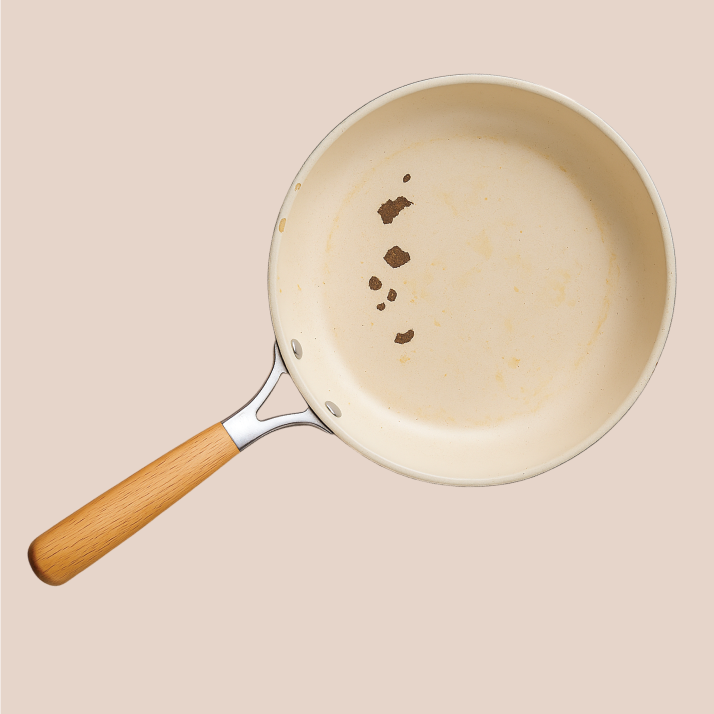
Ceramic
While ceramic pans start off non-stick, their coating tends to wear down quickly. Over time, food begins to stick, and the surface may chip or crack. With a limited lifespan, they often fail to deliver long-term value, making them an unreliable choice for everyday cooking.
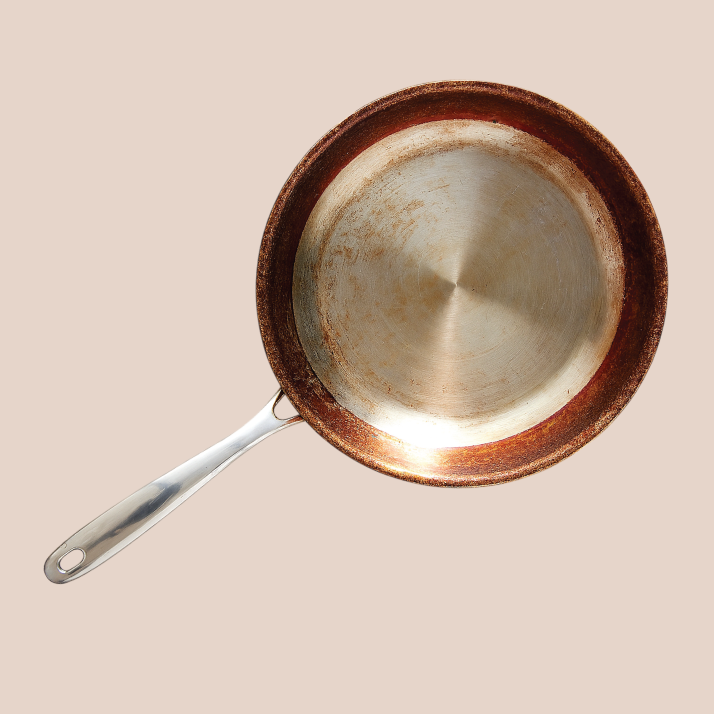
Stainless Steel
Cooking with stainless steel can be frustrating—food tends to stick, pushing you to add extra oil. Cleaning demands effort, often needing tough scrubbing. Plus, uneven heat distribution results in inconsistent cooking, turning every meal into a challenge.
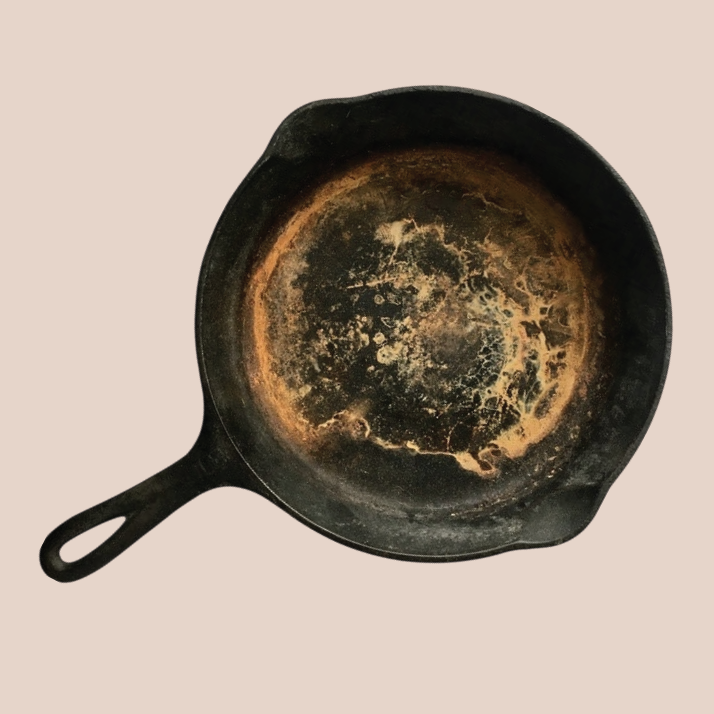
Cast Iron
Extremely heavy and demanding, cast iron needs frequent seasoning to maintain its nonstick surface. It’s susceptible to rust and can react with acidic foods, affecting both the pan’s longevity and the taste of your meals.
FAQ
How does titanium reduce sticking without any coating?
Our pans are made from pure Grade 1 titanium and finished with a hand-hammered microtexture. This unique surface creates natural valleys that reduce sticking, enhance airflow, and gradually develop hydrophobic properties. No Teflon, no coatings, no chemicals—just naturally low-stick performance.
Is titanium really better than stainless steel?
Yes—especially when it comes to cooking. Titanium is lighter, more resistant to corrosion, and won’t leach metals into your food. Unlike stainless steel, it’s completely non-reactive and 100% safe for life. And unlike other cookware, our pans are solid titanium—no blends, no cores.
Will it work on induction cooktops?
Absolutely. While titanium itself isn’t magnetic, our pans feature an integrated magnetic base for full induction compatibility. You’ll get efficient, even heating on all stovetops.
Is it dishwasher safe?
Yes, it’s dishwasher safe—but you probably won’t need it. Food slides off easily, and a quick rinse with water is usually all it takes. No scrubbing, no hassle.
What Can I Cook in It?
Anything and everything—fish, meat, eggs, sauces, stir-fries, vegetables, pancakes, and more. This pan handles high heat with ease, delivers a perfect sear, and is completely non-reactive, making it ideal even for acidic ingredients like tomatoes or citrus.
Is the pan safe for high-heat cooking or oven use?
Absolutely. The Titanium Hammered Pan Pro is built to withstand high temperatures without warping, making it perfect for both stovetop searing and oven use.
Why is Our Titanium Hammered Pan Pro is superior then others?
Cooking on our 100% pure titanium surface ensures you retain the highest levels of nutrients in your food, more than any other cookware. Research shows that titanium surface provides the best protection for essential micronutrients, keeping your meals healthier. Unlike traditional pans, which require more water and higher heat, titanium pans & pots help preserve moisture & nutrients.
Titanium: The Safest, Most Biocompatible Metal On Earth
Titanium is the safest metal for human contact. That’s why it’s trusted for medical implants - it’s naturally non-toxic and doesn’t interact negatively with the body or food.
In contrast, the "non-stick" and Teflon-coated pans found in most homes have been linked to cancer-causing chemicals that leach into your food. Once ingested, these harmful chemicals, known as "forever chemicals," stay in your body for life.
Naturally Antibacterial
Titanium’s natural antibacterial properties make it a top choice for medical devices, and it’s just as effective in your kitchen. It prevents bacterial growth, making your cooking environment safer and healthier, so you can cook with confidence knowing you’re using the cleanest, most hygienic surface available.
Unmatched Durability & Heat Resistance
Titanium is incredibly durable and can withstand extreme temperatures. Whether you’re cooking on the stovetop, over an open flame, or in the oven, this pan can handle it all without warping or deteriorating over time. It’s built to last, giving you peace of mind with every use.
Healthier Cooking
While it may not be quite as slippery as Teflon or “non-stick” coatings, the trade-off is undeniable: with the Titanium Hammered Pan Pro, you’re cooking on the safest surface available. Health should always come first, and with this pan, you can rest easy knowing your food isn’t contaminated by harmful substances.
Does the titanium surface affect the taste of food?
No, titanium is completely non-reactive, meaning it won't alter the flavor of your food. In fact, cooking on titanium retains more nutrients and flavor compared to other materials.
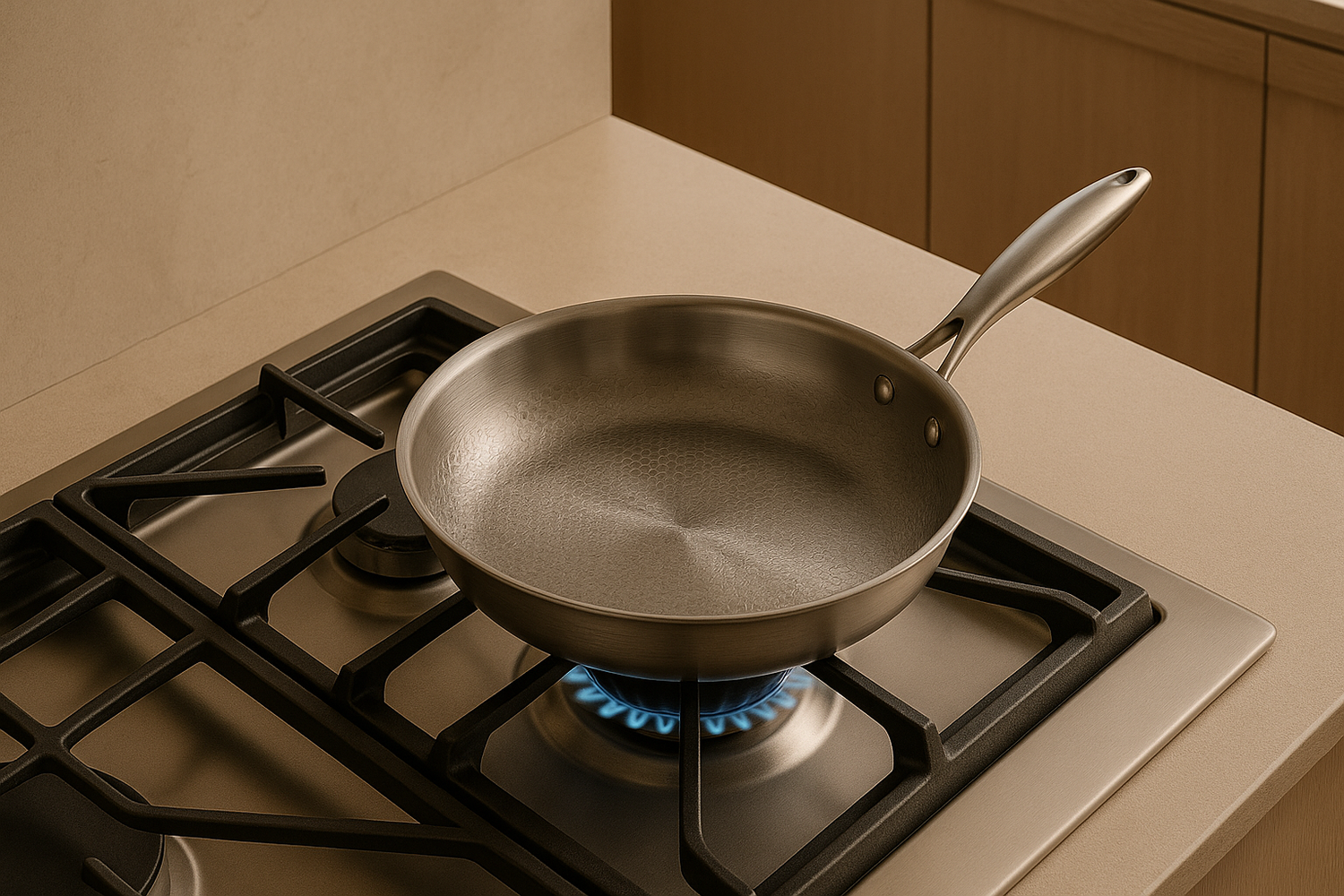
Get the Most Out of Your Titanium Pan – Starting Day One
- Wash Before First Use:
Gently wash the pan with warm water, mild soap, and a soft sponge to remove any factory residue. Rinse and dry thoroughly. - No Seasoning Required:
Unlike cast iron, titanium pans don't need to be seasoned. They’re naturally non-stick and ready to use right out of the box. - Use Medium or Low Heat:
Titanium heats quickly and retains heat well. Avoid high heat—especially when empty—as this can damage the surface over time. - Add Oil or Butter First:
Even with a non-stick surface, it’s best to add a small amount of oil or butter before heating. This protects the coating and improves cooking performance. - Use Non-Metal Utensils:
Stick to wooden, silicone, or plastic utensils. Metal tools can scratch the surface and shorten the lifespan of your pan. - Cool Before Washing:
Never pour cold water into a hot pan—this can cause warping. Let it cool completely before washing. - Gentle Cleaning Only:
Hand-wash with soft sponges. Avoid steel wool, abrasive pads, or harsh detergents.


